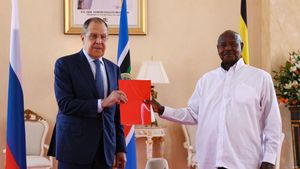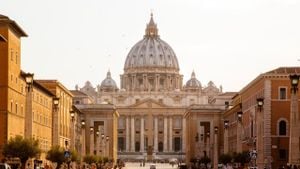With Donald Trump’s recent re-election, the political and legal landscapes are about to experience significant changes. The former president, now gearing up for his second term, is also dealing with multiple legal challenges—including four criminal indictments and civil suits—that have puzzled both legal experts and political analysts alike.
Just recently, court proceedings related to Trump’s conviction in New York have been put on pause. Judge Juan Merchan ordered all actions to stay until November 19, allowing the prosecution to reassess how to move forward considering Trump’s win. At the heart of this case is Trump’s previous guilty verdict on 34 felony counts for falsifying records tied to hush money payments made during the 2016 elections. This historic ruling marks him as the first former president to be convicted of felonies.
The stakes are high; potential sentencing is scheduled for November 26. Legal experts have speculated about the possible outcomes, ranging from fines to probation, but prison time seems unlikely, especially considering Trump’s age and his status as a first-time offender.
This legal situation is complicated by the doctrine of presidential immunity. A recent Supreme Court ruling has suggested presidents enjoy broad immunity for actions undertaken during their term. It has raised pivotal questions about whether Trump's actions, some of which are being prosecuted, occurred during his presidency or stem from personal endeavors. The ambiguity has led to deep ambiguity about the cases against him, with some speculating they could be dismissed or stalled indefinitely.
The specifics of the various legal challenges Trump faces are staggering. Besides the New York case, he's entwined with two federal charges, one stemming from efforts to unearth classified documents at his Mar-a-Lago estate and another concerning charges related to his attempts to overturn the 2020 election results. Trump has vehemently denied all allegations, labeling them as politically motivated attacks.
Another significant hurdle for Trump is the racketeering case concerning attempts to overturn the 2020 election results. He, along with 18 co-conspirators, faces charges elaborated by the state of Georgia. This case has been tangled up with substantial delays, creating questions about the feasibility of prosecuting Trump as president.
Legal experts share mixed views on how Trump's cases might evolve. Claire Finkelstein, a law professor, has conjectured about the likelihood of federal cases against Trump being wound down, especially with the Justice Department being unlikely to prosecute sitting presidents. Despite this, the argument remains whether these cases should continue considering Trump is now once again the leader of the nation.
Joseph Moreno, another legal authority, emphasized the supremacy clause of the Constitution, which states federal laws override state laws. He asserted it could provide grounds for halting state prosecutions, arguing they would distract him from fulfilling presidential duties.
Trump's future handling of these cases is uncertain. With his return to the White House, it’s assumed he may exert pressure on his administration to quash these proceedings. While he can't directly dismiss legal actions against him from the state level, the federal cases may see reduced momentum. Special counsel Jack Smith seems to be thinking over strategies to wind down the federal cases, potentially aligning with Trump's interests.
Undoubtedly, should Trump face any sentences or penalties from these legal troubles, it could embroil the nation back in controversy. Historically, presidential pardons have been topics of heated discussions, including discussions around whether Trump might pardon himself. If he chooses not to engage this complex legal situation, questions remain about how both the new administration and the judicial system will handle the waves of legal entanglements still looming over him.
For now, as Trump awaits potential sentencing and the outcomes of his numerous legal battles, the future remains unpredictable. Supporters have rallied around him, claiming the legal challenges are unjust. Whether these cases will stymie his presidential duties remains to be seen. For now, Trump's juggling act between leadership and legal obligations is set to dominate headlines and provoke heated debates for the next four years.



